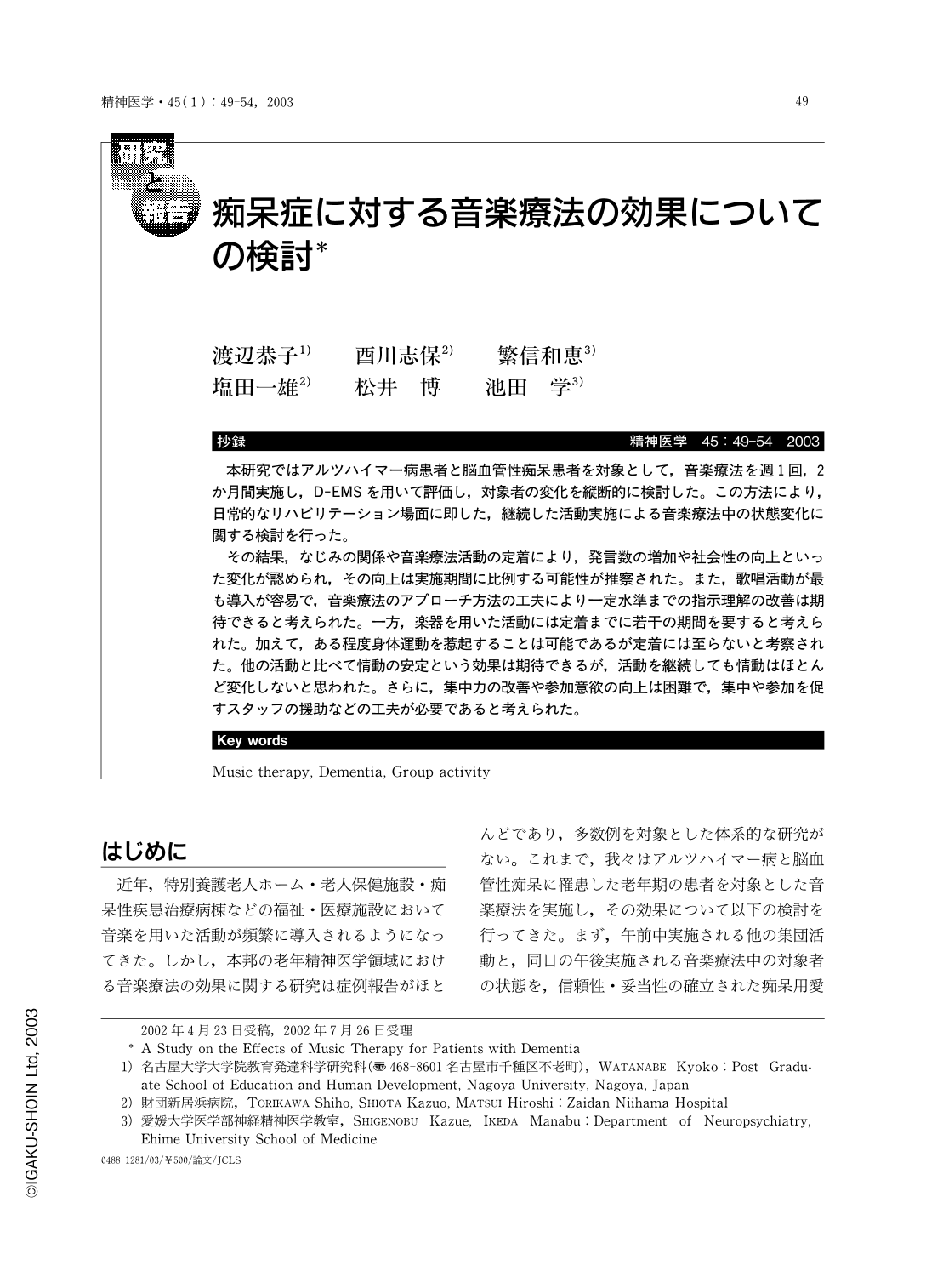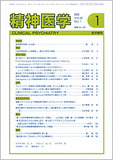Japanese
English
- 有料閲覧
- Abstract 文献概要
- 1ページ目 Look Inside
- サイト内被引用 Cited by
抄録
本研究ではアルツハイマー病患者と脳血管性痴呆患者を対象として,音楽療法を週1回,2か月間実施し,D-EMSを用いて評価し,対象者の変化を縦断的に検討した。この方法により,日常的なリハビリテーション場面に即した,継続した活動実施による音楽療法中の状態変化に関する検討を行った。
その結果,なじみの関係や音楽療法活動の定着により,発言数の増加や社会性の向上といった変化が認められ,その向上は実施期間に比例する可能性が推察された。また,歌唱活動が最も導入が容易で,音楽療法のアプローチ方法の工夫により一定水準までの指示理解の改善は期待できると考えられた。一方,楽器を用いた活動には定着までに若干の期間を要すると考えられた。加えて,ある程度身体運動を惹起することは可能であるが定着には至らないと考察された。他の活動と比べて情動の安定という効果は期待できるが,活動を継続しても情動はほとんど変化しないと思われた。さらに,集中力の改善や参加意欲の向上は困難で,集中や参加を促すスタッフの援助などの工夫が必要であると考えられた。
The present study investigated the effects of music therapy on demented patients with Alzheimer's disease and vascular dementia. The patients participated in weekly music therapy sessions for two months and were evaluated, using the Ehime Music therapy Scale for Dementia. The results suggested that the speech frequency and sociability of the subjects increased as they became familiar with the staff members and/or the music therapeutic activities, and that such improvements correlated with the term of participation. Singing was the easiest to introduce to subjects. Their level of comprehension seemed to improve by employing certain musical devices. Becoming familiar with the use of musical instruments required a long time for subjects. Music therapy seemed to be able to induce some physical movements, though not enough to be of lasting value for the subjects. Music therapy seemed to be more effective than other activities in stabilizing the emotions of the subjects, without correlation to the term of participation. Concentration and motivation for attendance were difficult to improve. Alternative devices such as staff help and encouragement might be essential to make music therapy effective.

Copyright © 2003, Igaku-Shoin Ltd. All rights reserved.


